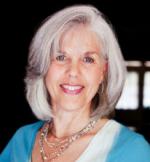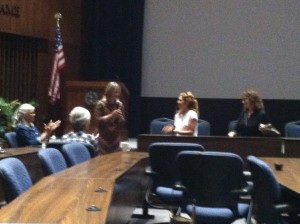By Lysa Parker, cofounder of Attachment Parenting International and coauthor of Attached at the Heart
 The magnitude of what we, as an organization, are trying to accomplish in this world is at times so overwhelming and seemingly impossible — but then I remind myself that if Attachment Parenting International (API) doesn’t do the work, then who will?
The magnitude of what we, as an organization, are trying to accomplish in this world is at times so overwhelming and seemingly impossible — but then I remind myself that if Attachment Parenting International (API) doesn’t do the work, then who will?
If we don’t advocate for families and speak loudly and persistently, who will?
The reality is that we cannot do it alone.
I am always inspired when I meet other professionals who take to heart the message of secure attachment and who are implementing and advocating it in their own way within their communities. They alone don’t have a voice strong enough to ensure stable funding or change public policies, but they are making a difference.
On a visit to Sacramento, California (USA), I had the privilege of visiting two Crisis Nurseries. I was so impressed by the love and dedication of the staff for the children they care for and their conscious efforts to make their location as home-like as possible. Most of the families served are low- or one-income families that have few resources or family members to help them out. So if parents need a safe place for their children to stay — whether to see to the doctor or while escaping a domestic violence situation — the Crisis Nurseries are a safe place for them to go. The children that I observed were held, rocked, comforted and loved by their caregivers, and infants were carried in a soft carrier. In addition, the parents can attend weekly classes where they learn to become more attuned to their child’s needs.
The families served know they have an “extended family” or “tribe” who will be available to them both day and night if needed. While it might not be the ideal of a secure attachment-promoting situation for the children, it does provide an immensely valuable service to parents in helping them develop their parenting skills and reducing their day-to-day stressors.
Unique programs, like the Crisis Nurseries, help bolster families when they have no one else to turn to and are an invaluable resource to their communities. Programs like this only support API’s efforts to spread the message about the critical importance of secure attachment.
I think what impressed me the most was knowing that there are many quiet, unsung heroes like those at the Crisis Nurseries — working everyday out in their communities, doing the best they can to support and strengthen families.
Those of you practicing Attachment Parenting (AP) in your homes are also a part of the unsung heroes who are working on making a difference in your own families and in the world. We hear from so many of you who are AP parents and professionals, that you’re sharing API’s mission to friends and fellow colleagues or how you incorporate it into your work.
Each one of us is doing our part, and I truly believe that soon we will reach the “tipping point” in our culture where AP is just the way you raise children. People are ready: They are seeking solutions to the epidemic of violence and abuse in our culture and around the world.
We must begin simply by seeking support for ourselves and providing support to families in need. At the heart of this peaceful style of parenting grows a profound love, a deep sense of connection and compassion that is felt toward each other and our fellow human beings.
That’s the beginnings of world peace.



